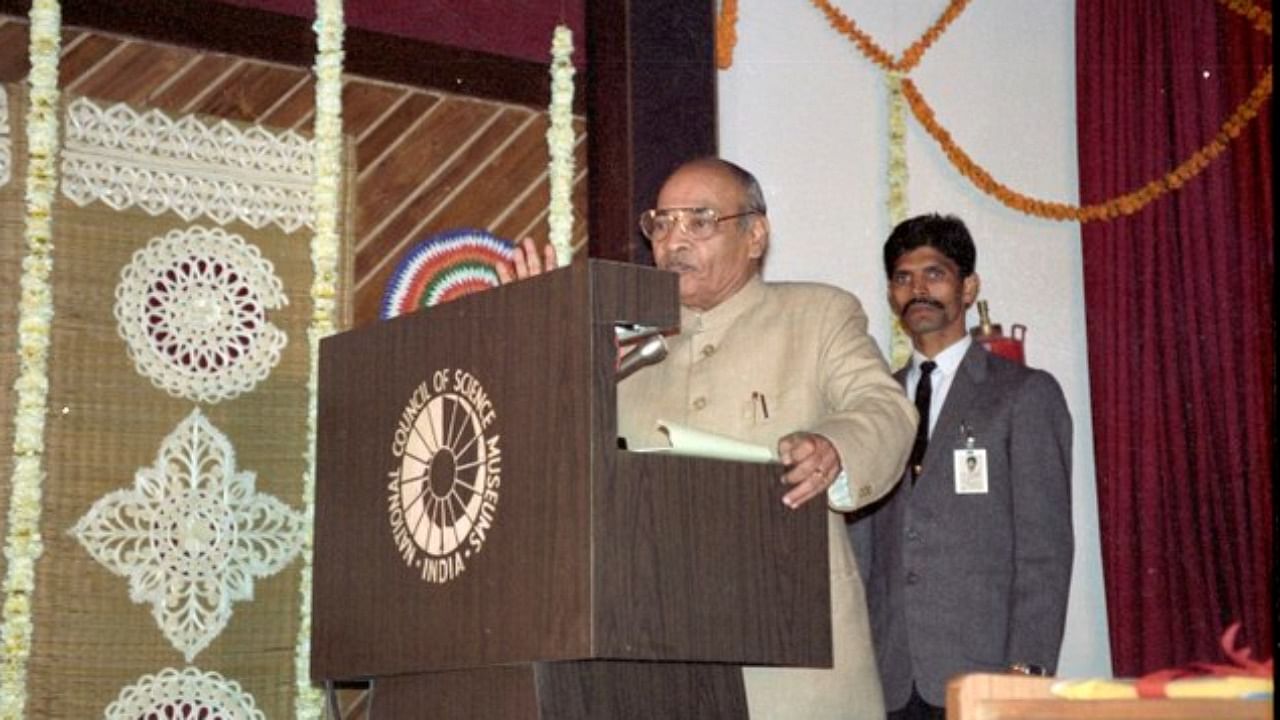
History does not end at a certain point. It flows on, often rhymes, and throws up forgotten heroes at times. Babasaheb Ambedkar and Subhas Chandra Bose are examples of great and influential heroes who have re-emerged after decades of national oblivion.
Another forgotten hero of our times will surely bounce back and will be recognised, along with Indira Gandhi, as one of the two architects of new, resurgent India, the credit for building which the BJP has successfully usurped. He is PV Narasimha Rao.
Indira Gandhi made India safe and secure by annihilating Pakistan from its eastern border, thereby ending the possibility of Pakistan sending a huge number of terrorists - a process that started about two decades after the Bangladesh War through the porous eastern border. On the other hand, Rao saved India from becoming an economically failed state and transformed the challenge into an opportunity by ushering in economic reforms, thereby paving the way for catapulting the nation to a great height.
Strangely, thanks to its skewed understanding of the course of recent India, the Congress failed to utilise such outstanding contributions of these two leaders. Sensing the opportunity, the BJP has used all the credit. Indira Gandhi, gradually being lost from memory, has not been propped up by the Congress for what was her greatest contribution to India. Perhaps the present satraps of the family that rules the party equate the anti-Pakistan with the anti-Muslim and shy away from mentioning how she made India safe and secure.
The case with Rao is all the more inexplicable. The Congress first family tried to credit Rao's finance minister, Manmohan Singh, who knew the technical details of the process and implemented the reforms as much as he was allowed by the then prime minister, as the 'father' of the economic reforms. But propaganda fails to last long and often becomes counterproductive. After the ten-year-long government, 2004-14, which Singh had led, the party has been discredited, and the Congress has lost relevance to a great extent.
Under the circumstances, placards with Rao's photo adorning the Congress 'Chintan Shivir' pathway in Rajasthan's Udaipur was a welcome move. But only a symbolic mention, an image of Rao shared by Shashi Tharoor, or a Bharat Jodo Yatra, will not change the day's dominant narrative. It requires a much deeper understanding of the past and present, different shades of aspirations, and the subtle interplay of societal forces.
The Congress party's distorted secular liberal agenda that Hindus perceive as anti-Hindu, or its sporadic rants to project itself as the messiah of the minorities, may only cost the party dearly, as we earlier witnessed in Gujarat. But the country needs a strong opposition, and to fill up the space, the Congress needs to be constructive and prove itself as nationalistic as the BJP.
It merits repetition that our economy was sinking in the years preceding Rao's coming to power. With foreign exchange reserves dwindling, India was on the verge of defaulting on debt repayment (to avoid which gold was pledged with the Bank of England). But the three major political forces were still playing the usual power games: the BJP and Janata Dal focussed on the Mandal-Kamandal strategy, while the Congress was busy toppling the Chandra Shekhar government.
That was when Rao came to lead a minority government in 1991 and took such earth-shaking decisions that ushered in the run of rejuvenating capitalism in the fields of a crumbling socialistic economy. Though his reforms centred on low hanging fruits, those could be done with just procedural determination like unshackling the economy from red tape and license-permit raj. Still, even these were too radical for those days.
Rao was the man who propelled India towards the path of prosperity and advancement by breaking the vicious cycle of the Hindu rate of growth, thereby paving the way for an immense expansion of the size of the economy and enlarging the kitty of the government revenue that helped to reduce poverty significantly. By refusing to recognise him as an icon, the Congress allowed Modi to become the symbol of the 'new India'.
Rao knew too much belligerence harmed. He never allowed Manmohan Singh to go for labour reforms though the latter openly advocated for it. This is also an important lesson for Congress. Again, though this man was the ruler at a very turbulent time when the Babri mosque was razed, he never took any anti-Hindu stand.
The following two years will form a window of opportunity that will give Rahul Gandhi perhaps the last chance. If Congress and he can rediscover and connect with the true psyche of India, they will survive at least as a strong opposition force. In this endeavour, propagating Narasimha Rao's legacy can be a handy political strategy for them.
(Diptendra Raychaudhuri is a journalist and author based in Kolkata.)
Disclaimer: The views expressed above are the author's own. They do not necessarily reflect the views of DH.